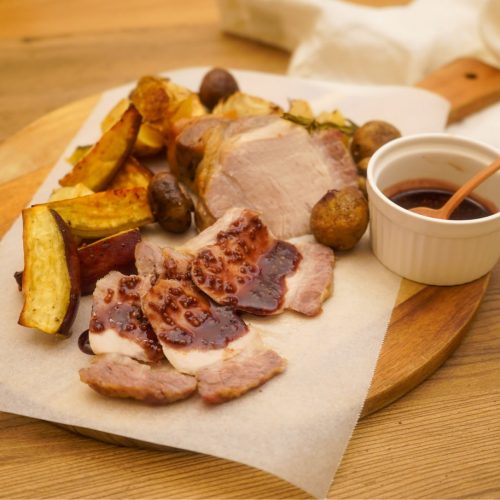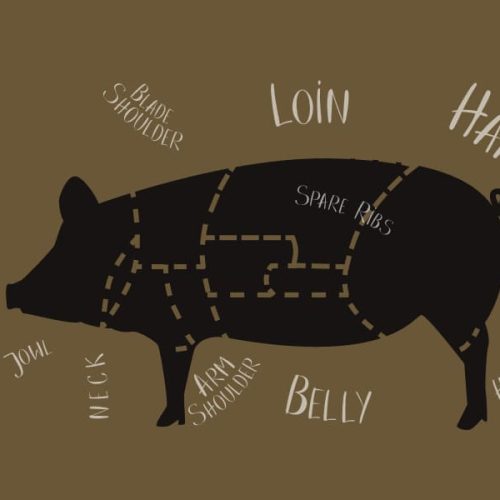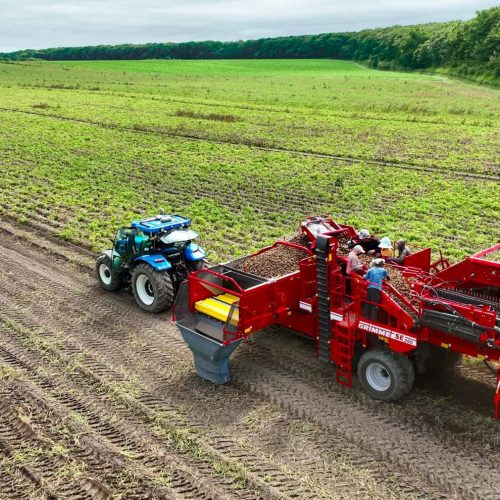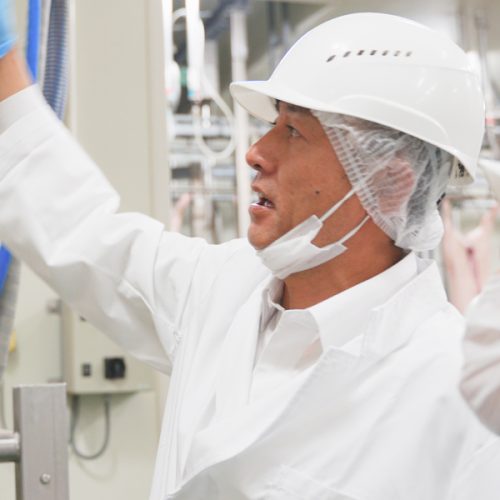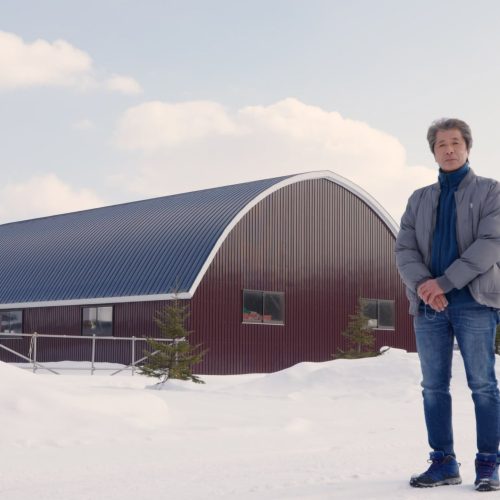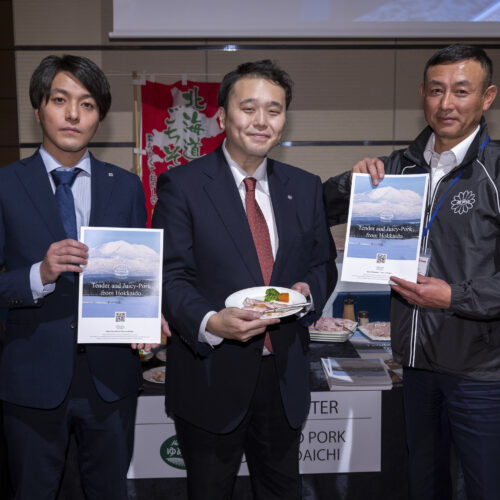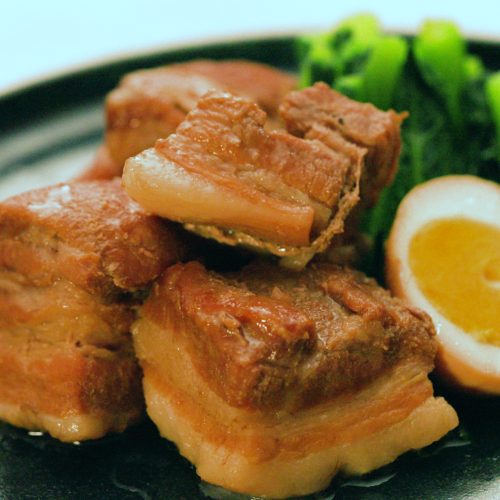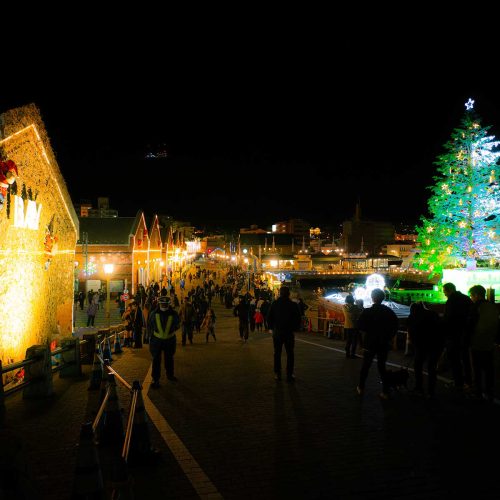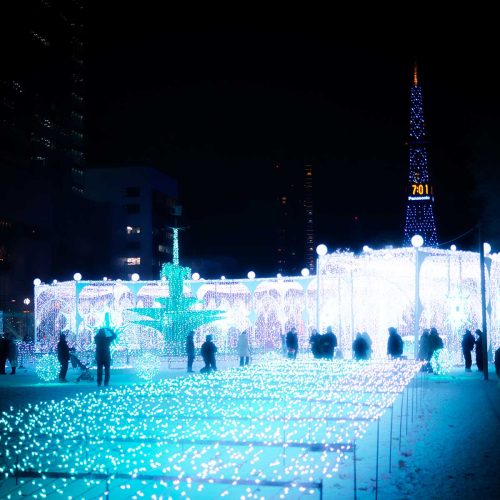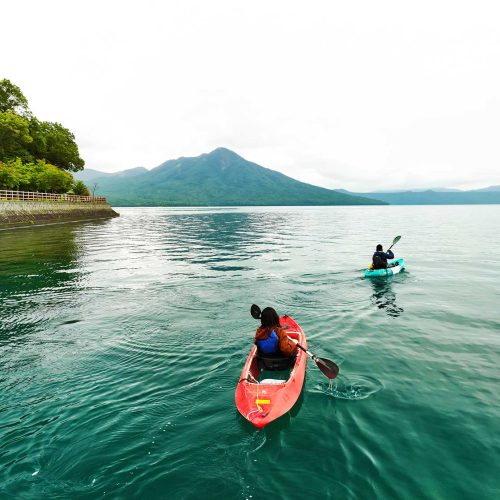- INTERVIEW
I want to change the agricultural industry. -The relationship between new forms of agriculture and "Yume no Daichi"
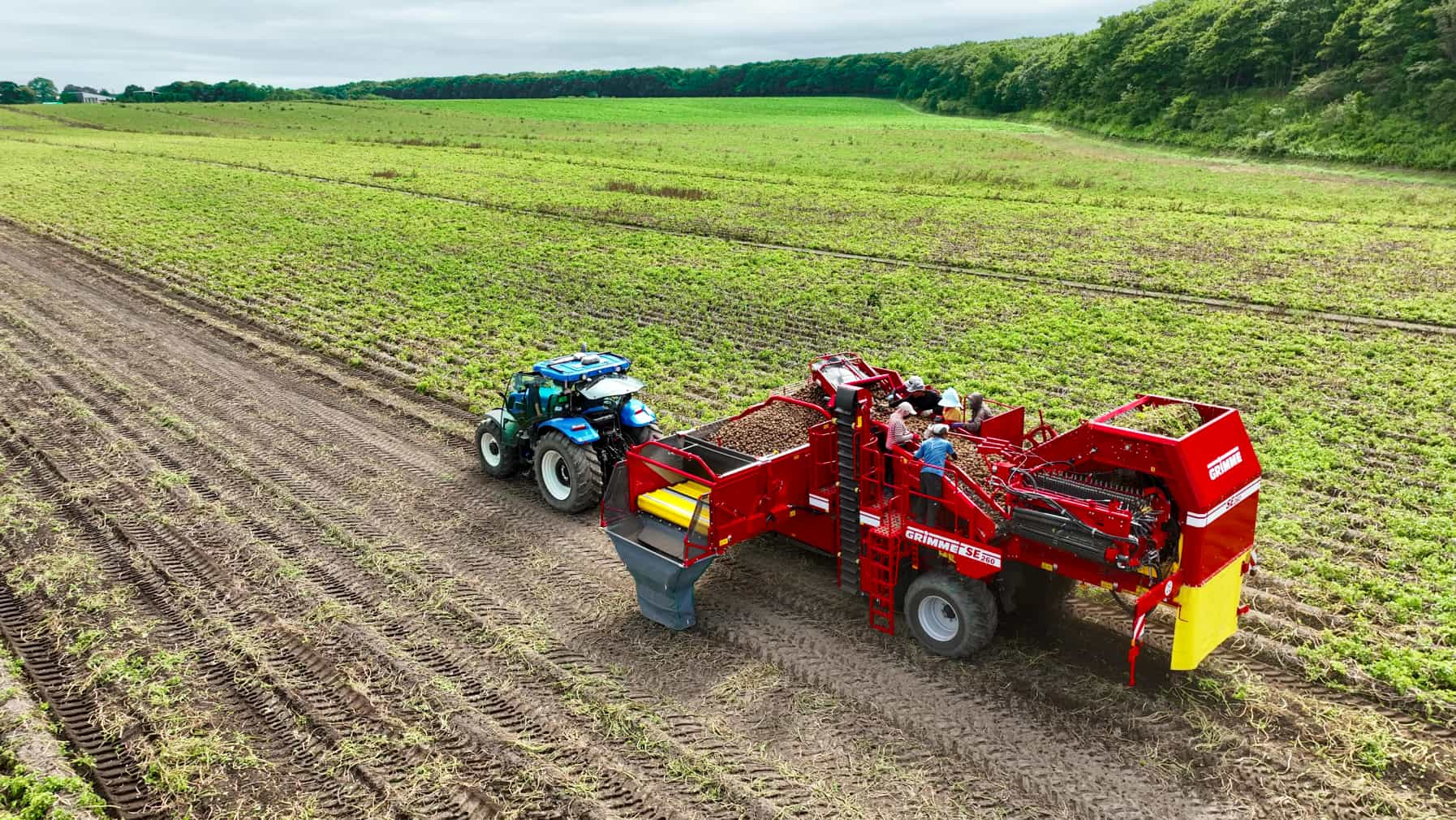
Interviewee
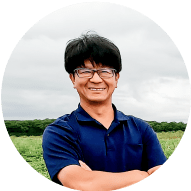
IGARASHI Shigeaki
Representative of K.I.Farm Co., Ltd.
Born in Kushiro City, Hokkaido.
After working as an office worker in Tokyo for 10 years, he started farming in Chitose City in 2004 while working as an office worker in Sapporo. She then became a part-time farmer for four years before becoming a full-time farmer. Established K.I.Farm Co., Ltd. in 2013.
A plane passes right over the field.
“K.I.Farm” has a vast field near New Chitose Airport. We visited K.I.Farm on the day of the season’s first potato harvest. This year, they introduced a large machine made in Germany, and this day was their first time operating it. Its bright red body, shining in the sunlight, moves in a straight line through the field, and above it, several staff members are sorting the potatoes. The amount that can be harvested at one time is 6 tons. As the harvested potatoes were transferred from the machine to the containers, it was amazing to see how many boxes as tall as a person filled up.
Several years ago, K.I.Farm started a pig farming business in collaboration with Hokkaido Chuo Farm Co., Ltd., which produces Yume no Daichi. In addition to working on circular agriculture through cooperation between cultivation and livestock, the company is at the forefront of cutting-edge agriculture, including smart agriculture*1, by introducing the latest equipment such as harvesters and drones as appropriate.*1
However, President Igarashi says, “To begin with, I don’t really understand what smart agriculture*1 is.” “I didn’t start using drones to do smart agriculture*1, but I did it because I thought it should be done, and it turned out to be smart agriculture*1.”
Although we are working on agriculture that is ahead of the times, we are not aiming to do just that.
Introduce it because it is necessary. Although it is very simple, it may be the correct form.
※1 A new type of agriculture that utilizes robot technology and information and communication technology (ICT) to achieve labor-saving, precision, and high-quality production.
Index
- From office worker to two pairs of straw sandals to “farmer”.
- Smart agriculture makes everyone an expert.
- Branded pig “Yume no Daichi” grows vegetables.
- Risks of relying on chemical fertilizers.
- Promoting collaboration between farming and livestock and aiming to become the “number one desired occupation”.
From office worker to two pairs of straw sandals to “farmer”.
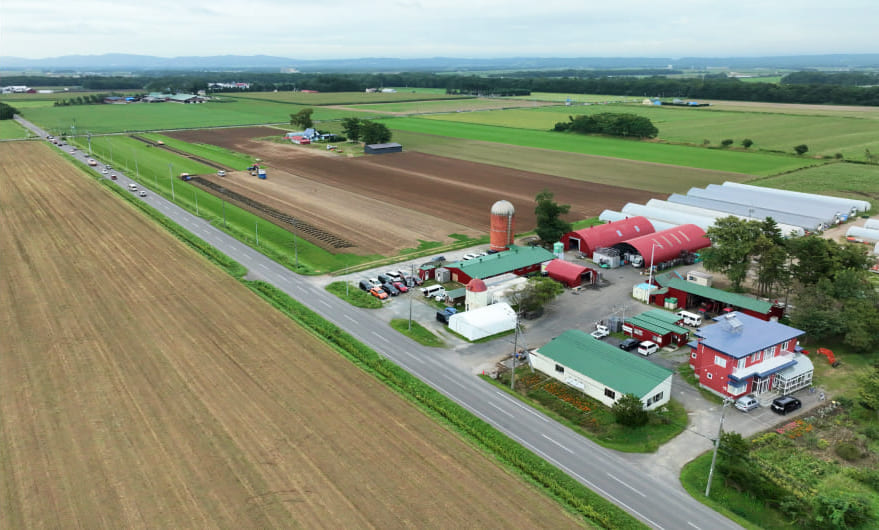
President Igarashi has an unusual background, having worked as a company employee in Tokyo, then returned to Hokkaido and became a part-time farmer and then a full-time farmer.
It all started with a small farm at his wife’s parents’ house. “I live in Tokyo, where I only see asphalt for the most part, and I was born in Kushiro, so I don’t have any fields.So, what was the size of a small kitchen garden seemed like a huge piece of land.”
President Igarashi began growing vegetables on the vacant land and began selling them. As a result of gradually expanding the scale of this “home garden”, he suddenly realized, “I’m like a farmer.”
Agriculture started out before we knew it, but now we have a strong sense of “protecting Japan’s food,” which is one of the reasons why it is one of the largest farms in Japan. “I began to think that what started as an extension of my home garden was a responsible thing to do. Later on, I realized that I had to grow a certain amount of food, produce a certain amount of food, and provide a certain amount of supply. That’s how we grew to this size.”
Point
About employment
One of the systems in which President Igarashi’s experience as a company employee is put to good use is that the company has an employment system similar to that of a regular company. From the beginning, the company had a goal of “making it a proper company,” such as providing ample holidays and introducing social insurance. At first, I was sometimes advised by my colleagues, “You can’t work in agriculture if you think like that,” but now my staff has grown and I’ve used up all my paid time. From these aspects as well, it can be said that we are presenting a form of agriculture that is in line with today’s times.
Smart agriculture makes everyone an expert.
As mentioned at the beginning, President Igarashi did not set out to do smart agriculture. He says that the reason why he introduced the latest machinery and self-driving and self-piloting machines using GPS was because he wanted to create an environment where anyone could work, regardless of skill level.
“Although our company is a latecomer to the pork industry, we are pursuing this without compromise based on the unique know-how we have cultivated through branded beef, including differentiation by breed and research into feed.”
President Igarashi also says that Hokkaido’s climate has a lot to do with it. “The planting period in Hokkaido is short. If you plant all at once, you have to dig all at once. If you do that, you won’t be able to make it in time if you dig with small machines. That’s why we really need large machines.”
However, machines are not used for all crops. For example, during the pumpkin harvest season, 40 people go to the fields every day. Things that need to be taken all at once are done by machines, and things that cannot be done are done by hand. We are facing “smart agriculture” every day, searching for methods that suit the current situation.
Side story
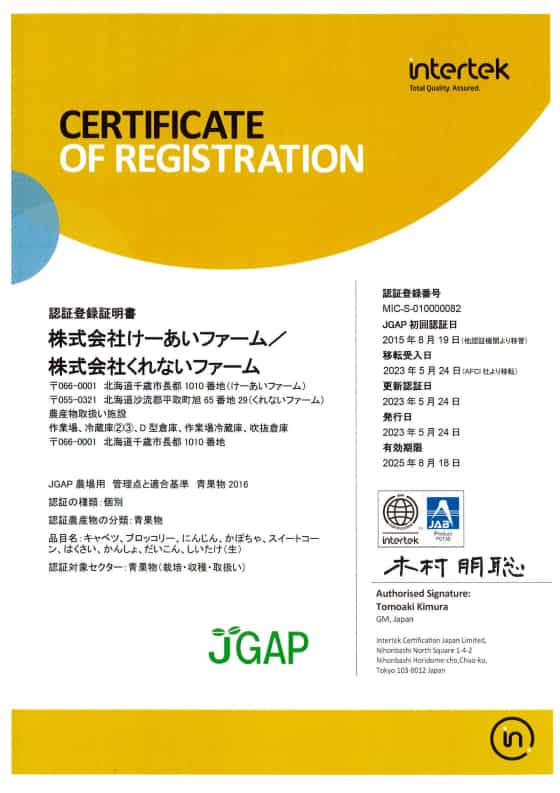
JGAP certification
K.I.Farm received Eco Farmer certification in 2009 and JGAP certification in 2015. Both of these certifications are given to farmers who are working on sustainable agriculture, but it seems that they also had the intention of “improving the company” in acquiring them. Regular checks by a third party spread a positive momentum throughout the company, and a positive environment was created, with rules being established without President Igarashi’s input. If the company improves, the staff will find it easier to work, and the crops produced will become safer and more secure. Such a wonderful flow is being developed.
Hokkaido Agricultural Administration Department“About Eco-Farmer Certification”. [in Japanese] Japan GAP Association
“About JGAP Certification”. [in Japanese]
Branded pig “Yume no Daichi” grows vegetables
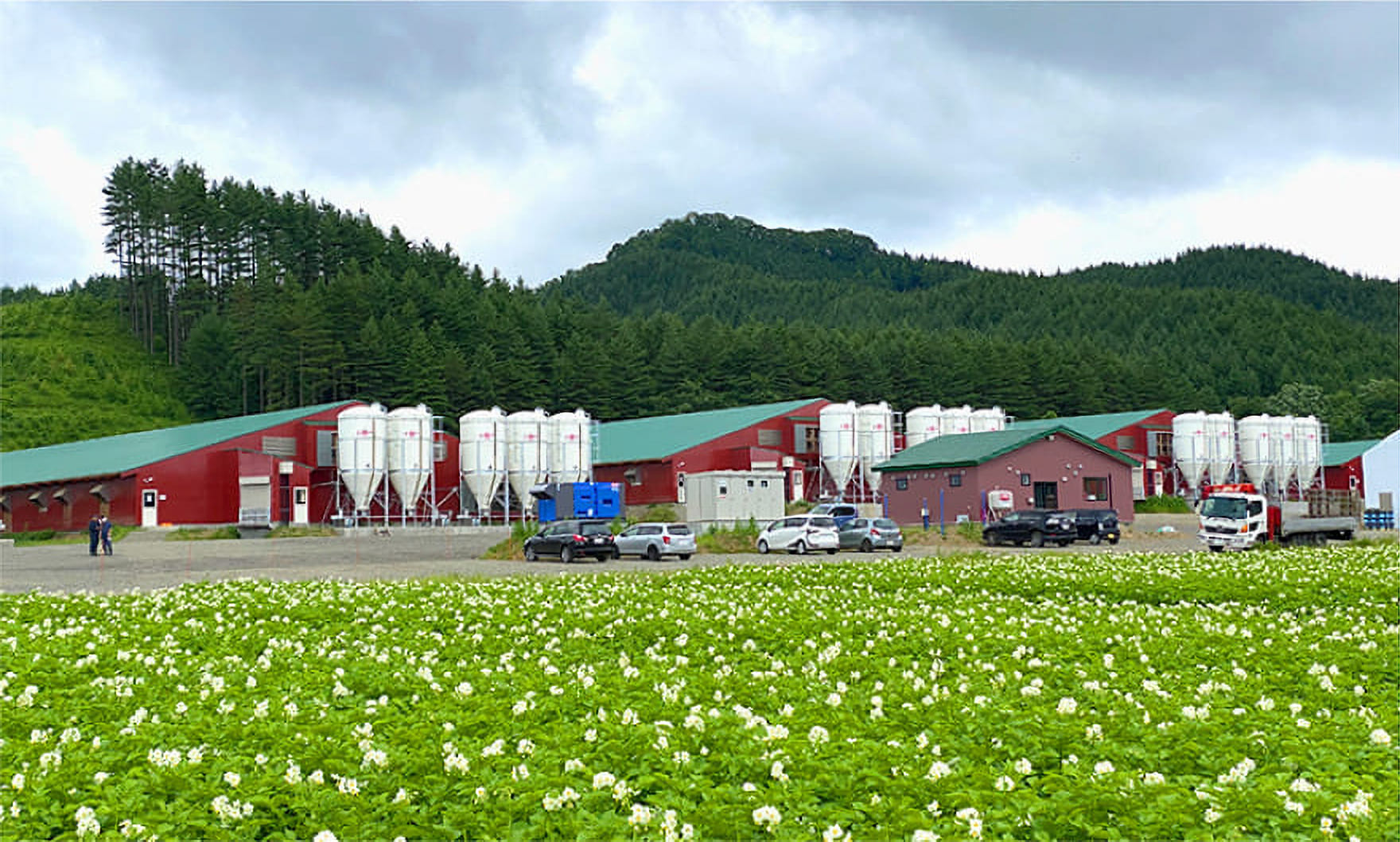
Our relationship with Hokkaido Chuo Farm Co., Ltd., which produces the branded pig “Yume no Daichi,” has been going on for about seven years. At first, they only used compost derived from pig manure made at the Chuo Farm in their fields, but in 2020 they established “Kurenai Farm” in Biratori Town. We accept piglets about 75 days old from the central farm and fatten them for about 110 days. A flow of shipping to Hidaka Meat Center Co., Ltd. was established.
After starting to raise pigs, they started focusing on circular agriculture within their company. To begin with, there are pros and cons to composting in the agricultural world, and there are various opinions about the amount to put in. However, President Igarashi decided to focus on “How can we make better use of the compost, which is inevitable since we are involved in pig farming?”
“What should we do in an environment where we have to put in too much compost? Are there any crops that would be suitable for that?” We decided to start with vegetables that are compatible with the large amount of soil that had been poured in. I grow vegetables by planting vegetables, then planting others, and so on, making adjustments as I go. Furthermore, in addition to just composting pig manure, they are also conducting research to improve its quality, such as adding calcium to it.
Risks of relying on chemical fertilizers
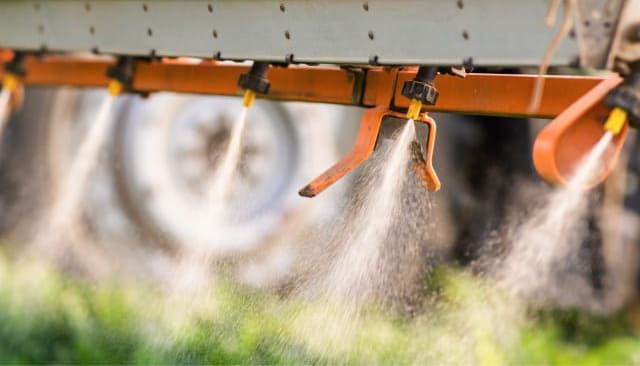
This use of compost is also related to the idea of not relying on chemical fertilizers. Japan’s food self-sufficiency rate is approximately 38% on a calorie basis (as of 2019), but in fact, most of the seeds and fertilizers themselves are imported, and the true self-sufficiency rate is said to be 8%.
However, last year, the supply of fertilizer was in an extremely critical situation due to factors such as a decrease in imports from China and Russia’s invasion of Ukraine. K.I.Farm was no exception, and the store he used to shop at suddenly told him, “We don’t have any.”
At that time, they were able to get out of the predicament by stocking up on other facilities and starting imports from other countries, but prices are still soaring today. There is no sign that prices will get cheaper, and there is a non-zero possibility that current imports will stop. “That’s why we’re now at the point where we have to start working on things like compost and circular agriculture.” The expression on President Igarashi’s face as he spoke spoke of the seriousness of the situation.
Promoting collaboration between farming and livestock and aiming to become the “number one desired occupation”
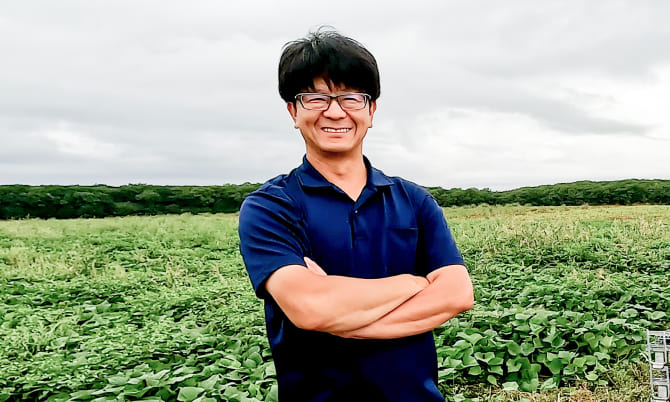
President Igarashi says that he would like to further promote cooperation between farming and livestock in the future. “It would be great if we could make our own fertilizer and feed. There are too many challenges to do that, so it’s not like we can do it that easily. Even if it’s impossible to be 100% self-sufficient domestically, we can do it to some extent. I think I have to make one.” Those words had a certain weight to them, especially since last year we were faced with a crisis of fertilizer depletion.
Of course, this initiative is also environmentally friendly. “It’s much better than making things with chemicals, and I’d like to do it with an emphasis on environmental considerations.”
On the other hand, I also want to change the image of “agriculture”.
K.I.Farm is different from conventional agriculture in everything from its management system to its scale and working methods. This is an environment where employees who only joined the company last year can ride large machines that even people who have been working as farmers for decades rarely have the opportunity to ride. “I want people to be motivated by that, and to do a job where they think, “My job is really cool,” he says.
“I kind of hope that someday, when I ask elementary and junior high school students, this is the number one job they want to do.” President Igarashi said this with a smile. In his calm expression, I could sense the strength of his ability to control this large farm and its many employees.
Editor
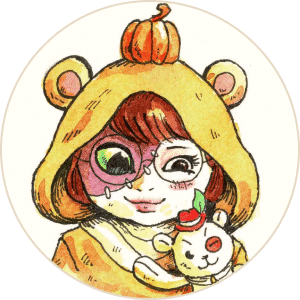
MITANI Noa
Essayist
Born and raised in Hokkaido. She loves to eat, and has an eye for sweets, bread, and pumpkins. She has a particularly strong passion for pumpkins, and her table tends to be yellow during the pumpkin season.
At the Hokkaido Digital Picture Book Contest, she won the Excellence Award (1st) and the Special Award (2nd) (both for confabulation).


